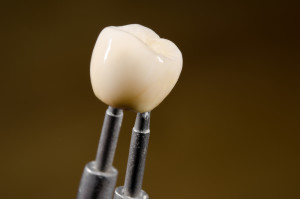 As tough as your teeth are they can still incur damage. Be it from an accident, a blow to the mouth, biting or chewing on something hard, or tooth decay, your tooth or teeth can become damaged to the point of no salvation. What do you do when that happens? It depends on how much of the remaining tooth structure is left. Dental crowns are a common restorative treatment. There was a time that it took up to three visits to place a crown, but today there is such a thing as a one-visit crown.
As tough as your teeth are they can still incur damage. Be it from an accident, a blow to the mouth, biting or chewing on something hard, or tooth decay, your tooth or teeth can become damaged to the point of no salvation. What do you do when that happens? It depends on how much of the remaining tooth structure is left. Dental crowns are a common restorative treatment. There was a time that it took up to three visits to place a crown, but today there is such a thing as a one-visit crown.
Are You In The Market For A Bridge?
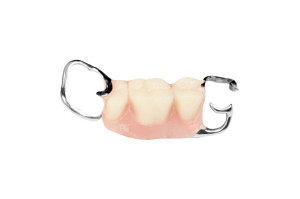 Dental bridges have many benefits. They replace lost teeth, restore your smile, allow you to chew a variety of healthy foods again, allow you to speak with no impediments, they help prevent your face from looking older and sunken in, prevent your teeth from shifting, and help maintain your proper bite position. Bridges are also more affordable than an implant, and far less-invasive that implant surgery. So, if you’re missing a few teeth, you may be in the market for a dental bridge.
Dental bridges have many benefits. They replace lost teeth, restore your smile, allow you to chew a variety of healthy foods again, allow you to speak with no impediments, they help prevent your face from looking older and sunken in, prevent your teeth from shifting, and help maintain your proper bite position. Bridges are also more affordable than an implant, and far less-invasive that implant surgery. So, if you’re missing a few teeth, you may be in the market for a dental bridge.
Is Dental Bonding For You?
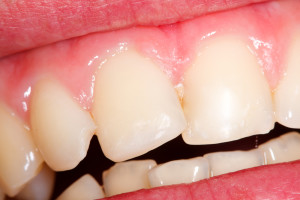 If you think whitening is the only cosmetic treatment you can afford then think again. Believe it or not, there are other quick and easy ways to improve your smile even if you have physical defects. There is no need to go all out and have a complete smile makeover if you don’t have the time or money. A few touch-ups here and there can have a major affect. Dental bonding is one of those treatments. Take our true or false quiz below to find out if dental bonding is for you.
If you think whitening is the only cosmetic treatment you can afford then think again. Believe it or not, there are other quick and easy ways to improve your smile even if you have physical defects. There is no need to go all out and have a complete smile makeover if you don’t have the time or money. A few touch-ups here and there can have a major affect. Dental bonding is one of those treatments. Take our true or false quiz below to find out if dental bonding is for you.
Are At-Home Whitening Systems Safe?
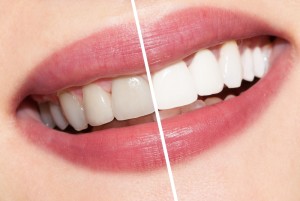 White teeth are all the rage, but it is not just a fad. A white smile can go a long way. There has been research indicating the many benefits of smiling, and the many benefits of an esthetic smile. Some of those benefits include being happier, more successful, and having more opportunities in your social life, love life, and professional life. That alone is worth whitening your teeth for. But if you choose not to have your teeth whitened professionally, are at-home whitening systems safe?
White teeth are all the rage, but it is not just a fad. A white smile can go a long way. There has been research indicating the many benefits of smiling, and the many benefits of an esthetic smile. Some of those benefits include being happier, more successful, and having more opportunities in your social life, love life, and professional life. That alone is worth whitening your teeth for. But if you choose not to have your teeth whitened professionally, are at-home whitening systems safe?
Interesting Facts About Chewing Gum
 Eliminating bad habits that can harm your dental health is a great first step in restoring your smile’s youthful appearance. You have probably heard that chewing on any food which is sticky, or takes a while to chew is generally bad for your teeth. In the case of sugar-free chewing gum, this is actually not true due to a common sugar substitute called “Xylitol”. There are several benefits to chewing sugar-free gum, and it may actually help prevent cavities and other oral diseases. (more…)
Eliminating bad habits that can harm your dental health is a great first step in restoring your smile’s youthful appearance. You have probably heard that chewing on any food which is sticky, or takes a while to chew is generally bad for your teeth. In the case of sugar-free chewing gum, this is actually not true due to a common sugar substitute called “Xylitol”. There are several benefits to chewing sugar-free gum, and it may actually help prevent cavities and other oral diseases. (more…)
What To Expect: Receiving Porcelain Veneers
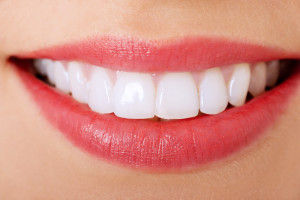 Patients who have long lamented the appearance of their smiles will find that porcelain veneers address a wide variety of esthetic imperfections. Don’t like the uneven staining on your teeth or feel embarrassed by minor chips and cracks? Veneers will cover them. Wish you could find a way to fill spaces between teeth and customize the shape and size of your teeth? Veneers will do that, too. Wish you could address all of the above with a single treatment? Well, you get the idea. This cosmetic solution offers exceptional improvements for what becomes a true smile transformation. However, as excited as you may be feeling about the benefits you may feel equally curious about what to expect from treatment. Set your mind at ease by learning more about the process:
Patients who have long lamented the appearance of their smiles will find that porcelain veneers address a wide variety of esthetic imperfections. Don’t like the uneven staining on your teeth or feel embarrassed by minor chips and cracks? Veneers will cover them. Wish you could find a way to fill spaces between teeth and customize the shape and size of your teeth? Veneers will do that, too. Wish you could address all of the above with a single treatment? Well, you get the idea. This cosmetic solution offers exceptional improvements for what becomes a true smile transformation. However, as excited as you may be feeling about the benefits you may feel equally curious about what to expect from treatment. Set your mind at ease by learning more about the process:
Addressing Jaw Discomfort TMJ Treatment
 Do you suffer from jaw discomfort and other problems commonly associated with TMJ disorder (TMD)? If you’re not quite sure, here’s a rundown: Your TMJs are your temporomandibular joints – or your jaw joints. You have one located on each side of your head. It provides your lower jaw the connection to the rest of your cranium and also provides the ability for it to move. When these joints fail to function properly, you suffer from TMD. This may bring with it a lot of frustrating symptoms like popping, soreness, radiating discomfort, and difficulty chewing comfortably. Fortunately, we offer a variety of TMJ treatment options to alleviate your discomfort, while steering you back toward comfort and oral health, including:
Do you suffer from jaw discomfort and other problems commonly associated with TMJ disorder (TMD)? If you’re not quite sure, here’s a rundown: Your TMJs are your temporomandibular joints – or your jaw joints. You have one located on each side of your head. It provides your lower jaw the connection to the rest of your cranium and also provides the ability for it to move. When these joints fail to function properly, you suffer from TMD. This may bring with it a lot of frustrating symptoms like popping, soreness, radiating discomfort, and difficulty chewing comfortably. Fortunately, we offer a variety of TMJ treatment options to alleviate your discomfort, while steering you back toward comfort and oral health, including:
How Invisalign May Work For You
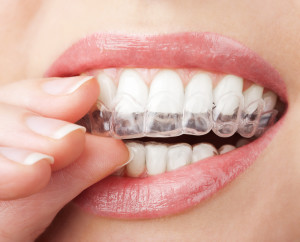 You may have some idea of what to expect from Invisalign treatment. For instance, you may know that it does not rely on the use of brackets and wires like traditional braces. However, we often find that patients’ knowledge about this orthodontic treatment tends to stop there. Fortunately, Invisalign can offer patients a long list of exceptional assistance for a variety of concerns. True, it is wonderful for guiding you toward a cosmetically improved smile, which is a very important aspect of your daily life. Wondering what else it may do? Find out more:
You may have some idea of what to expect from Invisalign treatment. For instance, you may know that it does not rely on the use of brackets and wires like traditional braces. However, we often find that patients’ knowledge about this orthodontic treatment tends to stop there. Fortunately, Invisalign can offer patients a long list of exceptional assistance for a variety of concerns. True, it is wonderful for guiding you toward a cosmetically improved smile, which is a very important aspect of your daily life. Wondering what else it may do? Find out more:
Dental Implants: The Essentials
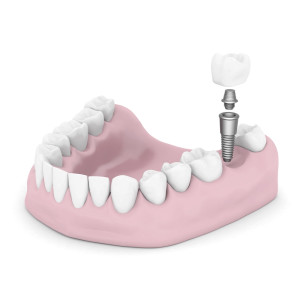 Do you have open spaces in your smile? If so, you are likely all too familiar with the myriad of uncomfortable and frustrating side effects that accompany tooth loss. For this reason alone, seeking an option to restore your smile is extremely important. Dealing with daily trouble with chewing and speaking does not make for a wonderful quality of life or a happy existence. For patients seeking a tooth replacement solution that offers lasting, unsurpassable stability, we suggest the incredible benefits of dental implants. Like what you are hearing but you are quite unfamiliar with implants? Learn the essential information with the following:
Do you have open spaces in your smile? If so, you are likely all too familiar with the myriad of uncomfortable and frustrating side effects that accompany tooth loss. For this reason alone, seeking an option to restore your smile is extremely important. Dealing with daily trouble with chewing and speaking does not make for a wonderful quality of life or a happy existence. For patients seeking a tooth replacement solution that offers lasting, unsurpassable stability, we suggest the incredible benefits of dental implants. Like what you are hearing but you are quite unfamiliar with implants? Learn the essential information with the following:
Exceptional Benefits of Metal-Free Fillings
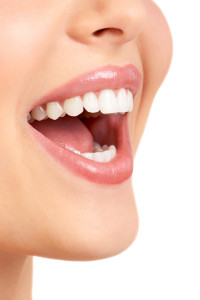 You may feel disappointed when you find out you have a cavity, particularly if you assume you will receive a metal filling. Composed of mixed metals, including mercury, these restorations remove the decay and repair your tooth but they come with a variety of potentially unsavory side effects. To ensure you enjoy a return to good oral health, a lasting repair for your tooth, and an appearance you can continue to feel proud of even after tooth decay, we offer tooth-colored fillings. Not sure what this means or what to expect? Learn more:
You may feel disappointed when you find out you have a cavity, particularly if you assume you will receive a metal filling. Composed of mixed metals, including mercury, these restorations remove the decay and repair your tooth but they come with a variety of potentially unsavory side effects. To ensure you enjoy a return to good oral health, a lasting repair for your tooth, and an appearance you can continue to feel proud of even after tooth decay, we offer tooth-colored fillings. Not sure what this means or what to expect? Learn more:







